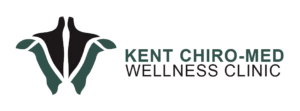
“OCF-18… OCF-1… Did you contact your adjuster?
We need your policy and claim number, sir.”
Sometimes, these mumbo-jumbo terminologies can be hard for patients to understand. Patients who are involved in car accidents have separate case management than regular patients who attend our clinic and pay for their treatments via personal health insurance or out-of-pocket. The purpose of this blog is to help you understand specific guidelines as to what to expect when you are involved in a car accident.
· The forms.
We have a holy trinity of forms that we use in the clinic. These forms are called OCF-1, OCF-23 and OCF-18. Please don’t ask us why they are named like that, but that’s the way Financial Services Commission of Ontario (FSCO) named them (FYI; FSCO is the association that regulates the insurance sector, mainly service providers who invoice auto insurers for statutory accident benefits claims). The OCF-1 is the form that ALL patients who were recently involved in a new car accident (or any car accident) need to fill out. It is essential that you fill it out and then mail it back to your car insurance.
Without the OCF-1 completed and submitted, we can’t open a treatment case. If you want to get better faster, make sure you get on the OCF-1 as soon as possible. Many ask us where we get this form from. Your car insurance company will often email it to you. Some even mail it to your mailbox. We can provide you with one copy in the clinic as well. As for the OCF-23 and OCF-18, these are forms that our chiropractors and physiotherapists fill out. OCF-23 is a form that will automatically enable you to have access up to 12 weeks of treatment. It’s the basic package. However, individual patients do still feel pain after 12 weeks (because they have lots of pain or because there are so many injuries that it is impossible for the practitioner to heal them all in 12 weeks). This is where OCF-18 comes in action. It allows your practitioner to prove your insurance company how good or bad your healing progress is and how much more treatments you need.
· My OCF-18 plan got denied by the insurance company. What do I do?
Sometimes, despite compelling evidence that you need more treatments, certain insurance company may reserve the right to refuse covering the proposed OCF-18. Please, keep in mind not to blame your practitioner for not successfully getting the OCF-18 approved. Our skilled practitioner assesses you thoroughly, and they have a great understanding as to how many more treatments you sincerely need. However, once the OCF-18 is submitted, the ball is in your car insurance’s court. If they said “yes, we will approve it,” it’s good news! You can now resume your care. If they refuse the plan, you will be submitted to an independent medical assessment where you will be evaluated by a team of doctors to figure out objectively where you are at now, with your healing process. If despite the assessment, the OCF-18 is refused again, and you genuinely feel that you are still in pain, it’s time to get a motor vehicle accident lawyer.
· What’s the difference between major and minor injury guideline?
People who are being treatment below the 12 weeks limits are often classified within a guideline called Minor Injury Guidelines. These patients suffer from common injuries like whiplash, back strain, headaches and etc which are most likely to heal faster. Some cases take longer than 12 weeks to heal such as concussion, traumatic disc rupture, traumatic spinal instability and etc. These conditions are complex and need more than 12 weeks of healing. Therefore, patients with complicated conditions like that are classified within the Major Injury Guideline. Rarely, we get sometimes cases of patients who are confined to wheelchairs because they have been paralyzed due to the car accident. These extremely challenging cases are not within the Major Injury Guideline, but rather the Catastrophic Guideline.
- Acupuncture
- Chiropractor Ottawa
- Custom Orthotics
- Graston Technique Ottawa
- Head & Neck Pain Ottawa
- Low Back & Hip Pain in Ottawa
- Middle Back & Shoulder Pain Ottawa
- Physiotherapy Ottawa
- ACL Injury Treatment Ottawa
- Arthritis Pain Relief Ottawa
- Back Pain Relief in Ottawa: Your options for treatment
- Child Youth Sports Injuries & The Treatments Available Ottawa
- Chronic Pain Relief: Treatments That Can Help Ottawa
- Concussion Treatment In Ottawa: The Best Ways To Get Better Quickly
- Pain Relief for Elbows, Wrists, & Hands Ottawa
- Treatments for Balance and Gait Disorders Ottawa
- Ottawa Shockwave Therapy
- Spinal Decompression Ottawa
- Sports Physiotherapy in Ottawa
· Coming on time to your appointment is important.
Many patients cancel their appointments when they are being treated for their car accident-related injuries. Failure to come to your appointments shows a negative value to your car insurance. The message you are sending to them is “I am in not so much pain; I am doing better.” People who fail to show up to their appointments are charged a cancellation fee by our clinic, not from a punitive standpoint of view, but more of encouraging tone, to incite them to commit to their recovery.
· What documents do I need to bring with me on my first appointment?
Bring with you the claim number, policy number, name of your car insurance representative (also called insurance adjuster), and date of the accident. If you have a lawyer, let us know as well about him/her. Bring any diagnostic reports or imaging that you have taken after the accident.
· I have personal insurance from work or through my family.
Does this influence at all the care I am getting through my car insurance? The answer is YES. In Ontario, you NEED to exhaust all the personal insurance benefits for the particular service you are receiving as part of your car accident insurance. For example, if you work in a company X and the company offers you health insurance benefits of $500 to cover for Ottawa chiropractic care, even you are involved in a car accident and have car accident benefits; you will need to pay the chiropractic services through your work insurance. However, good news. Whatever portion of the treatments that was paid by you (and not the work insurance; meaning let’s say the work insurance covers 80% of the $500 allocated for chiropractic care and you pay the rest of the 20% out-of-pocket, the 20% money you spent will be reimbursed to you by your car insurance). It’s the law. We get patients who are scared that they will not see the money back. Rest assured that all that you spent will come back to you. Delaying payment will delay your care. Once your work or family personal insurance is exhausted for the services you are getting (ie. chiropractic and/or physiotherapy), we need a formal letter from that insurance to prove the car insurance that you have exhausted all your personal health benefits.
We hope this information is useful to you! Should you have any questions about our services, don’t forget to visit www.kentchiromed.com or call us at any time for further inquiry at 613.695-8600.

